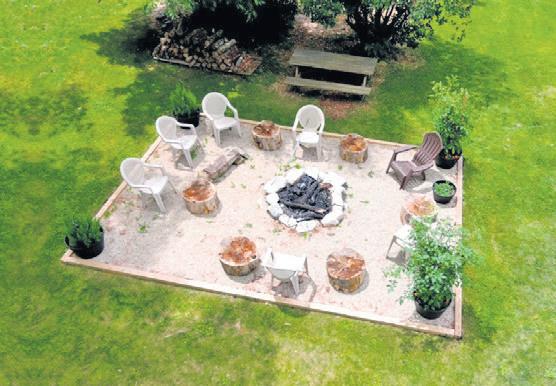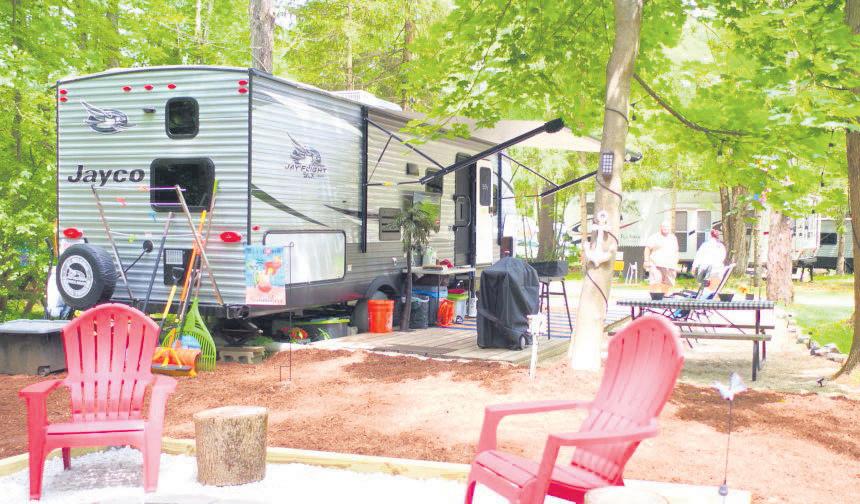
8 minute read
Choose a pet groomer
Pet groomers can help your pet stay clean and healthy. They’re skilled professionals who know how to lovingly handle your pet while trimming their nails, bathing them and cutting their hair.
They know that while their services will help improve a pet’s quality of life, those animals aren’t always appreciative and may put up a fuss around water or recoil from having their nails trimmed. Despite the challenges of reluctant pets, they’ll be able to give those pets the grooming they need to keep them free of pets, reduce shedding and make their coats clean and shining. Here’s how to pick a good local pet grooming service for your pet.
Get referrals
Family and friends should be your first stop. They might know of a good pet groomer in your area. Referrals are a large part of any business. Most groomers make an extra effort to make sure their customers are satisfied. If you are coming to a groomer via a recommendation, tell the person. Groomers will appreciate knowing that their business has a great reputation. It is likely they will go the extra mile to make sure you are pleased with their services.
Groomers are most often found in large pet stores, veterinary offices and stand-alone storefronts. You can find them through your local newspaper or online. Make a list of groomers that are conveniently located near your home or business. You will drop your pet off and pick them up later in the day.
Visit and ask questions
Visit groomers on your list and inspect their shops. Check for cleanliness and professionalism. The service area should smell fresh and clean. The pet waiting room should also be free from debris and chemicals.
Observe how the groomer and staff interact with animals and customers. Nothing can be more difficult than a slick, wiggly pet. But groomers should be gentle. They should never yell or jerk a pet around.
Inquire about their services. Do they groom both cats and dogs?
Is there a separate waiting area for the two types of pets? Can you choose the shampoo?
Are nail clippings and anal gland expressions part of the package, or do these services cost extra?
Checking about these things ahead of time will spare you disappointment when you bring your pet home. Some groomers do not perform these services. It’s important to know what you can expect.
Also, be sure to ask about medical services. What happens if your pet has an emergency while they with the groomer? Does the groomer have a relationship with the local veterinarian?
Another option is a mobile pet groomer. These professionals have a vehicle with everything they need to groom your pet in front of your house. If traveling is inconvenient, mobile pet groomers might be an option for you.
Bringing your pet
Prior to scheduling an appointment, bring your pet to their office. Observe the relationship between your pet and the groomer. Are they comfortable with each other?
Tell your groomer whether your pet is sensitive to having nails trimmed or ears cleaned. Some pets are terrified of the hair dryer. Mentioning it to your groomer can help the situation be more successful and less stressful.
Choose which services you need before your arrival. Sometimes, groomers who work on commission might try to upsell you. Never let them talk you into services you do not need or want.
If you are unhappy with the way your pet looks when you pick it up, speak to the groomer right away. It might be due to miscommunication or your pet’s behavior. Expect groomers to fix the problem to your satisfaction immediately.
Remember, you can always change your groomer. If you are uncomfortable or your pet seems stressed, look for a new pet groomer. It is important that you and your pet are satisfied with the groomer’s results.
Sponsored by: Animal Inn





For many families, camping is a favorite form of vacationing. Whether traveling with an RV or pitching tents, an ideal trip involves heading to one of the country’s many campgrounds.
Choosing a campground can be a fun part of planning the trip. There is a huge variety in campgrounds available. Some are basic with just the space and access to water, while others offer more options such as fuel pumps, restrooms and access to boats or other recreational options.
Some campgrounds are designed for a family-style experience, while others cater to more intimate outings. And, of course, location is a huge factor.
Here are some factors to consider when planning a great camping trip.

Location
The first and most important choice is the campground’s location.
If you’re going on a faraway trip, then you’ll need a campground close to your destination. Online reviews and word-of-mouth descriptions from campers who have stayed there can help you decide.
More often, though, camping is just as fun when you stay reasonably close to home. Look for a site that’s convenient for a weekend getaway, yet far enough away that it feels like a real vacation. Sometimes it can be very close to home geographically but a world away mentally.
Nearby attractions can help you make the choice, too. National or state parks, tourist sites or cities you’d enjoy visiting can make certain campsites more appealing. Many travelers like to use campsites almost like hotel rooms, letting them travel, enjoy nature and stay frugal all at the same time.
For others, it is important that a campground be in a particular type of ecoregion. You might be looking for a campground in the mountains, near forests, near lakes or one that has hiking trails.
Choose a campground
campground’s layout and rules are a good match for your kind of fun.
If you’re the peace-and-quiet kind of camper, you’ll want a campground with widely spaced, very private camp sites and strictly enforced curfew rules. Most campgrounds have a designated hour when quiet time begins, but some are stricter than others about making sure campers comply with them.
If you want to play music and get loud with friends and family, you should look for a camp site where that’s not going to be a problem. Later curfews and a more laid-back atmosphere would be a better fit.
Talk to the campground’s manager if you have any questions about what’s allowed and what’s not. Knowing and following the rules will not only help keep you safe, but also make you a better camping neighbor so everyone has a good experience.
Reservations
Finally, look for a campground that accepts reservations well in advance, especially if you plan to camp on a holiday, a weekend or during a busy time of year.
Every campground has their own procedures for how they handle reservations. The most popular sites can be reserved months or even years in advance for the heavy travel season, so plan far ahead if you want the best selection.
Amenties
Let’s face it: There’s one part of camping that people seemingly never agree on — just how much civilization should be involved in the experience.
For some campers, only a primitive campsite that can be reached by remote hiking counts as true camping.
For others, a luxury RV with full hookups and paved walking paths is as primitive as they want to get.
The choice really comes down to personal preference. The campsite should match your expectations for what you want from the outdoor experience, whether that’s just the basics — maybe a water hookup and a pad for your tent — or a full-blown luxury “glamping” resort.
Ask about electrical connections, RV hookups, showers, bathrooms and any other amenities you might want for your camping trip. The best campgrounds will offer a range of services at different price points to meet your needs.
Layout and rules
For many people, camping is all about peace, quiet and isolation. For others, it’s more about partying with friends.
Whatever your style of camping, you should make sure the
Some campgrounds use an online reservation system where you can schedule and pay for your campsite on the computer. Others can be reserved by phone or mail. And some don’t allow reservations at all, allocating their camp sites to whomever shows up first.
By picking a campground with the right location, amenities and policies, then reserving it well in advance, you’ll be setting the stage for a memorable, fun experience enjoying the great outdoors.
Sponsored by: Bonnie Brae Campground






Exercising in a gym offers many benefits: access to quality equipment, guided instruction by professional trainers and other activities. Some even offer extras such as pools, steam rooms and tanning beds.
Exercising in a group atmosphere can provide extra motivation, and many gyms are open 24 hours a day to accommodate their clients’ busy schedules.
Don’t let body insecurity keep you from joining a gym. Don’t worry about feeling out of shape on your first day; there are plenty of gyms out there where you won’t feel intimidated. Experts at the facility will be happy to educate you about nutrition and wellness.
Gyms can benefit your mental health. A good workout releases endorphins, improving your mood and fighting stress. Exercise also increases energy levels and improves sleep. Building muscles helps you burn calories more effectively. Consistent workouts lower blood pressure while reducing the risk of some types of cancer, osteoporosis and Type 2 diabetes.
People often have a hard time forming good fitness habits. Fitness regimens can be difficult to maintain. We often create excuses or our schedules simply don’t permit time to exercise. It can be hard to stay motivated. But committing to a gym membership and taking advantage of available workout options can help you develop better habits.

Joining a gym will help cure the boredom you might feel when working out. These facilities have a variety of equipment, programs, classes and teachers. You can alter your workouts easily and keep exercise interesting.
Once you’ve decided to join a gym, the number of choices can seem daunting. Gyms should be inspiring places. You will need to feel comfortable and motivated to keep coming back.
The right facility for you might not be the right place for someone else. Each gym has different classes, programs, amenities and services to help members work on their abilities and goals.
Personal trainers can be especially helpful if you need instruction or encouragement. All trainers have their own style of communication — from mild and uplifting to severe and harsh. They will help you map out realistic goals that are tailored to meet your individual needs.
A good personal trainer will offer a health assessment before working out with you. They will discover your physical limits and then work to expand those boundaries safely. They will constantly ask you to do just one more rep, one more minute on the machine. If your trainer seems without com- passion or pity, it is only because they are pushing you for your own good. However, you should communicate with them about what motivates you and what discourages you. These professionals will also give advice on nutrition, effective gym routines and proper stances for weight training. If you have health restrictions such as joint pain, low-impact workouts are available. One such low-impact workout is Pilates, as it uses smooth motions and gliding actions to tone muscles and improve flexibility.
Many gyms have a pool. They might even offer aqua aerobics. This comprehensive workout uses the water’s resistance for extra toning. It is usually very safe for people with joint pain. If you can find a private instructor, you can get an excellent workout involving both cardio and endurance training. When choosing a gym, remember your future goals. Whether you opt for the services of a personal trainer, or participate in a Pilates, weight training or water aerobics class, your aim should be to improve constantly and have fun.

















